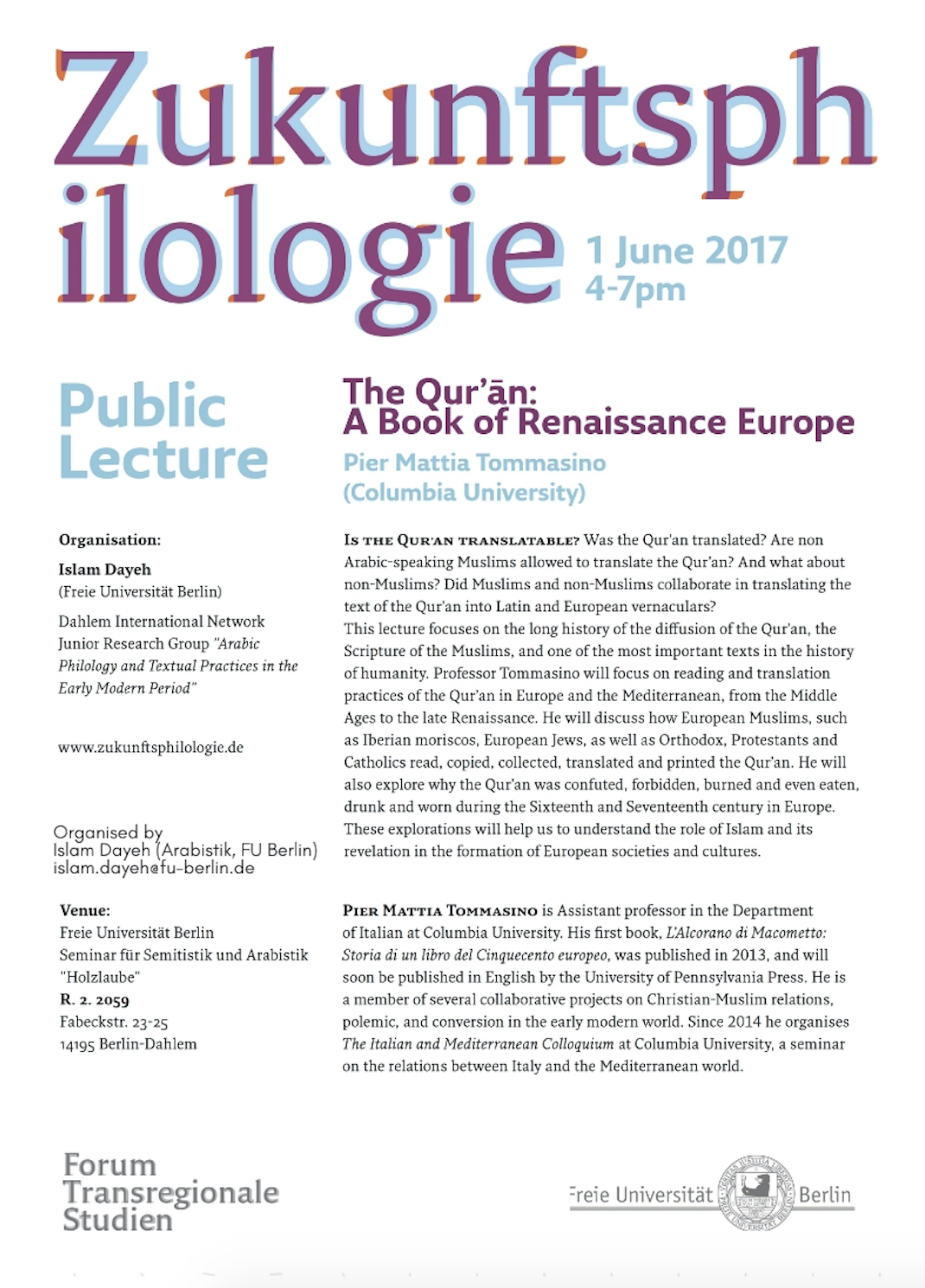Is the Qur’an translatable? Was the Qur’an translated? Are non Arabic-speaking Muslims allowed to translate the Qur’an? And what about non-Muslims? Did Muslims and non-Muslims collaborate in translating the text of the Qur’an into Latin and European vernaculars? This lecture focuses on the long history of the diffusion of the Qur’an, the Scripture of the Muslims, and one of the most important texts in the history of humanity. Professor Tommasino will focus on reading and translation practices of the Qur’an in Europe and the Mediterranean, from the Middle Ages to the late Renaissance. Tommasino will discuss how European Muslims, such as Iberian moriscos, European Jews, as well as Orthodox, Protestants and Catholics read, copied, collected, translated and printed the Qur’an. He will also explore why the Qur’an was confuted, forbidden, burned and even eaten, drunk and worn during the Sixteenth and Seventeenth century in Europe. These explorations will help us to understand the role of Islam and its revelation in the formation of European societies and cultures.
Pier Mattia Tommasino is an Assistant professor in the Department of Italian at Columbia University. He received his PhD in 2009 at the Scuola Normale Superiore, in Pisa, and he was fellow at I Tatti in 2010-2011. His first book, "L’Alcorano di Macometto: Storia di un libro del Cinquecento europeo", was published in 2013, and will soon be published in English by the University of Pennsylvania Press. Professor Tommasino’s research, in English, Italian and Spanish, have shed light on the fascinating figure of Giovanni Battista Castrodardo, the scholar behind the 1547 "Alcorano di Macometto", the first printed translation of the Qur’an in a European vernacular. He has also traced the book’s wide dissemination, including its afterlife in Amsterdam’s Sephardic Community, and written more generally about Islam in the early modern Mediterranean. He is a member of several collaborative projects on Christian-Muslim relations, polemic, and conversion in the early modern world. Since 2014 he organizes "The Italian and Mediterranean Colloquium" at Columbia University, a seminar on the relations between Italy and the Mediterranean world.
The Qur'ān: A Book of Renaissance Europe
Pier Mattia Tommasino (Columbia University); Chair: Islam Dayeh (Freie Universität Berlin)
Freie Universität Berlin, Holzlaube, Room 2.2059, Fabeckstr. 23-25, 14195 Berlin


